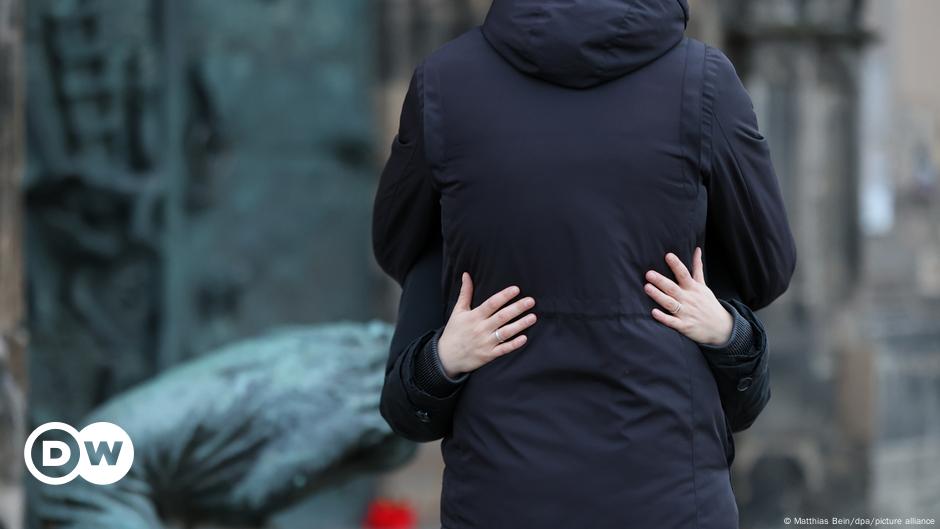The shock of the attack on a Christmas market in the central German city of Magdeburg continues. A 50-year-old Saudi Arabian doctor drove his car into a crowd of revelers, killing six and injuring more than 200.
Amidst this tragedy, greater attention has been paid to victim assistance. For many victims, the wounds are not only physical but also psychological. Trauma therapy, counseling services and self-help groups help provide a safe space to process what they have experienced.
But crisis professionals face unique challenges, especially in a city like Magdeburg in the German state of Saxony-Anhalt, where an attack like this has never happened before. They help victims channel their various traumatic experiences.
“It’s the images that they saw. The sounds of the car coming towards them. The smells. Not being able to sleep. Basically, it’s difficult for a person to understand all this at first. “You have to try to assimilate these emotions,” Marco Vogler, Saxony-Anhalt’s Catholic state police chaplain in victim counseling, said, adding that it is a big challenge, especially because of the care of each person. It needs to be done differently and that means finding the right person to talk to. It’s ultimately about talking about the emotions so they can be dealt with: sadness, anger, resentment, fear.
Visser Ring NGO helps victims
The victims of Magdeburg are also receiving support white ring (white ring). The non-profit organization describes itself as Germany’s largest aid organization for victims of crime and violence. “People have lost loved ones, people have seen terrible things – no one should have to deal with something like this on their own,” Kerstin Godenrath, regional president of the White Ring in Saxony-Anhalt, wrote in a press release. “
“Those affected are still in a state of shock and despair. They are barely able to ‘function’ in their daily lives. They suffer from pain and various injuries, and of course, they are worried about permanent damage , whether they will be able to continue their profession, and how this terrible experience will affect their future,” Godenrath wrote in response to an inquiry. White Ring often feels abandoned; is the first point of contact for One of the biggest challenges is dealing with trauma. “The expectation at this point is that people will get professional psychiatric help, which Weisser Ring can’t provide. “However, we also guide them through a support system.”
It may take months, if not years, to deal with the consequences of the attack. Magdeburg’s Christmas market was well-crowded at the time of the attack, and a correspondingly large number of people witnessed the attack and may later need help.
Marco Vogler, who, in addition to his role as state police chaplain, is also responsible for the emergency and telephone counseling service, explained, “We now have to definitely find all the victims or encourage them to come forward. ” In Saxony-Anhalt. Often in such terrifying situations, the first thing people want to do is get away from the scene, Vogler said. He added, “Some people may just get a scratch and then realize it’s more than just a scratch.”
Vogler tries to meet victims in a neutral environment. However, sometimes visiting the site of the horror with a victim can be helpful. “For example, by returning to the square where the Christmas market was set up as part of the follow-up care, in order to demystify it. So that the place can become normal again and not lose its aura – even if a The shadow will always be cast on it.”
A commissioner to give voice to victims
Nationwide assistance for the victims of the Magdeburg attack is being coordinated by Germany’s Victims Commissioner Roland Weber, appointed by the Federal Justice Ministry. The Victims Commissioner is the central point of contact for anyone affected by extremism or terrorist attacks in Germany. This may include the bereaved, injured persons, witnesses, first responders, and owners of businesses or facilities that have become crime scenes as a result of an attack.
The Commissioner responds to the concerns of all victims and works with relevant agencies to provide practical, financial and psychosocial support. She is also the “political voice” of victims and those who advocate on their behalf in the political and public spheres.
Weber told the public broadcaster ZDF They believe more than 500 people were affected by the attack. Like State Police Chaplain Vogler, Weber hopes that many of those affected will not contact public authorities or victim support services until they realize that they are suffering psychologically.
“The second group includes the families of the bereaved, who are seriously affected. But relatives of the seriously and critically injured also often come forward much later. But they also need help.”
Lessons learned from the Berlin BreitscheidPlatz attack
Weber pointed out ZDF Those affected are entitled to rapid assistance, giving them access to outpatient trauma clinics “to avoid severe post-traumatic stress disorder”. Authorities had learned lessons from the 2016 Islamist attack on Berlin’s Breitscheidlitz Christmas market.
Weber said the victims were cared for too late at the time. And “little was also done in terms of compensation. In some cases, foreign victims were not entitled to any compensation.” As a result, the laws were changed retroactively.
Weber intends to monitor aid to victims after the Magdeburg attack.
This article was originally written in German.
While you’re here: Every Tuesday, DW editors provide insight into what’s happening in German politics and society. You can sign up for the weekly email newsletter Berlin Briefing here.





Leave a Reply